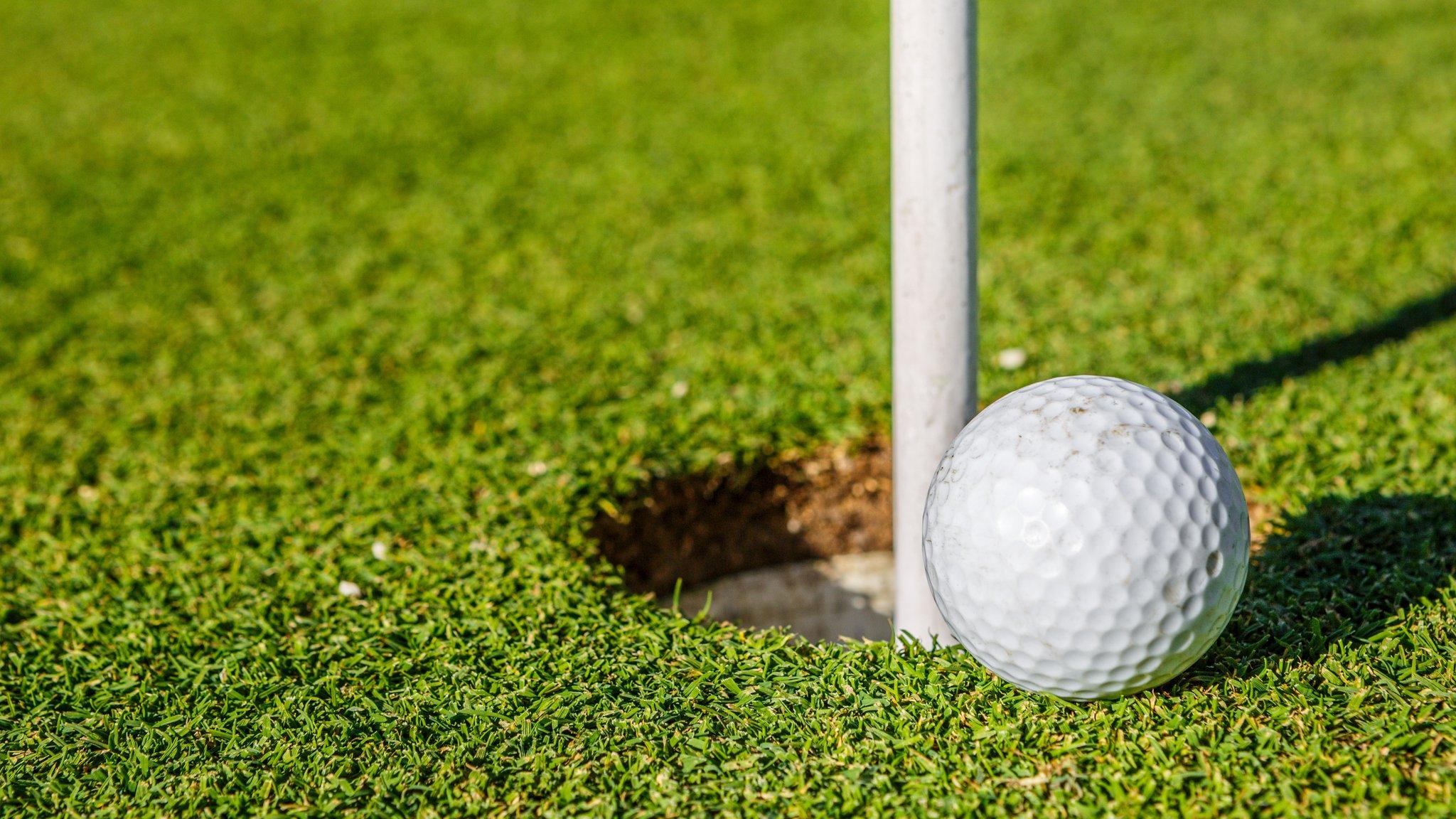Netball World Cup 2023: Everything you need to know
- Published
- comments
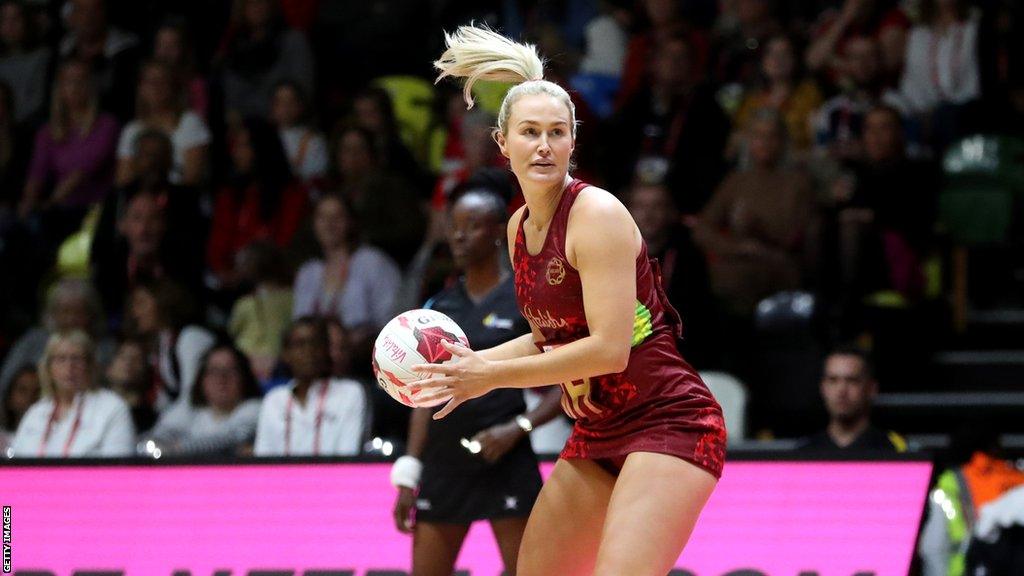
Chelsea Pitman is one of the players picked for the World Cup squad. She was part of the England team that won bronze in Liverpool in 2019
After a four year wait, the Netball World Cup returns this month!
It promises to be not only an exhilarating tournament, but also an historical one as the first time the Cup will be held in Africa.
Here is your ultimate guide to what is sure to be a show-stopping event.
When and where is the Netball World Cup 2023?
Meet the England Roses starring at the Netball World Cup
The tournament begins on 28 July in Cape Town, South Africa, and will run until 6 August.
The England squad, who are one of the top teams in the world, will play against Barbados in their first pool match.
It's the 16th time the tournament has been held and it happens every four years.
Which teams are taking part in the Netball World Cup?
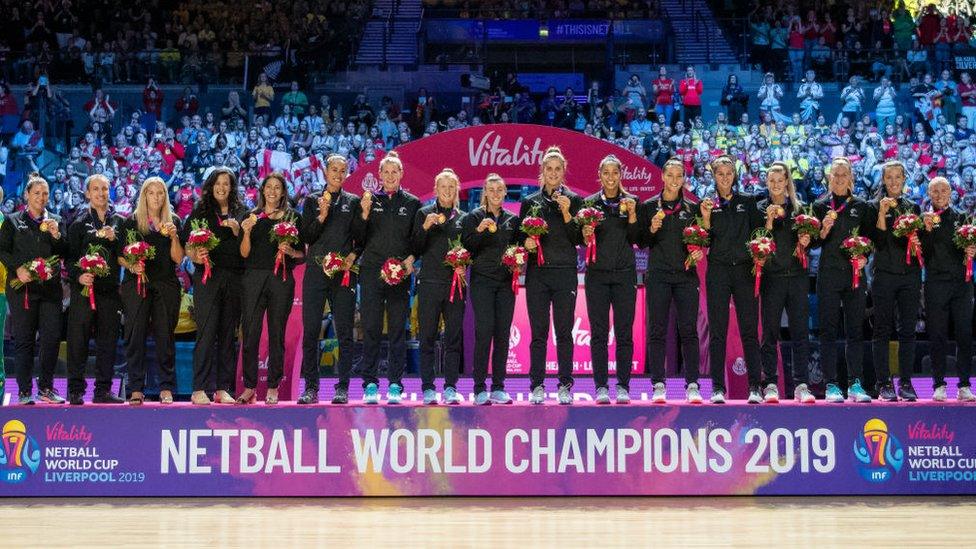
The last Netball World Cup was held in Liverpool in 2019 where New Zealand were crowned the winners
Teams around the world having been playing in matches ahead of the World Cup to qualify for the event.
We'll see England, Scotland and Wales taking part from the home nations.
The first stage will see teams in four pools compete in a round robin format - which means teams are eliminated after a certain number of losses.
Pool A: Australia, Tonga, Zimbabwe and Fiji
Pool B: England, Malawi, Scotland, Barbados
Pool C: Jamaica, South Africa, Wales and Sri Lanka
Pool D: New Zealand, Uganda, Trinidad & Tobago and Singapore
Netball World Cup teams to watch out for
Netball's "Big Four" will most likely dominate the tournament.
They are Australia, New Zealand, England and Jamaica.
Australia are the favourites to win as they're top of the current world rankings.
The Diamonds, as Australia are known, will also be out for revenge over their closest rivals New Zealand beat them in the dying moments of the 2019 final by just one point.
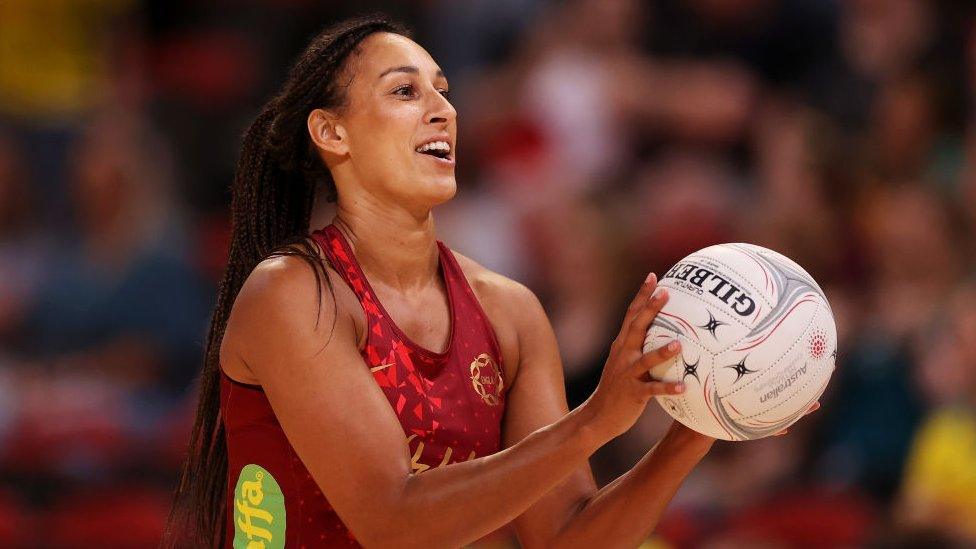
Geva Mentor will be making her final appearances as one of the England Roses.
Who will win the Netball World Cup?
England have claimed the bronze medal six times and been runners-up once, but have never won the title.
However, Jamaica took a surprise silver medal at the 2022 Commonwealth Games in Birmingham, so will carry some confidence with them.
The home nation, South Africa are fifth in the world but will the support of the often raucous crowd spur them on to a surprise success?
Their campaign begins against Wales, who sit ninth in the rankings, just above Scotland in 10th.
Big players at the Netball World Cup
England legends Jade Clarke and Geva Mentor will be playing in their sixth World Cup.
Mentor made her Roses debut in 2000, aged 16, but has said this will be her last outing as an international player.
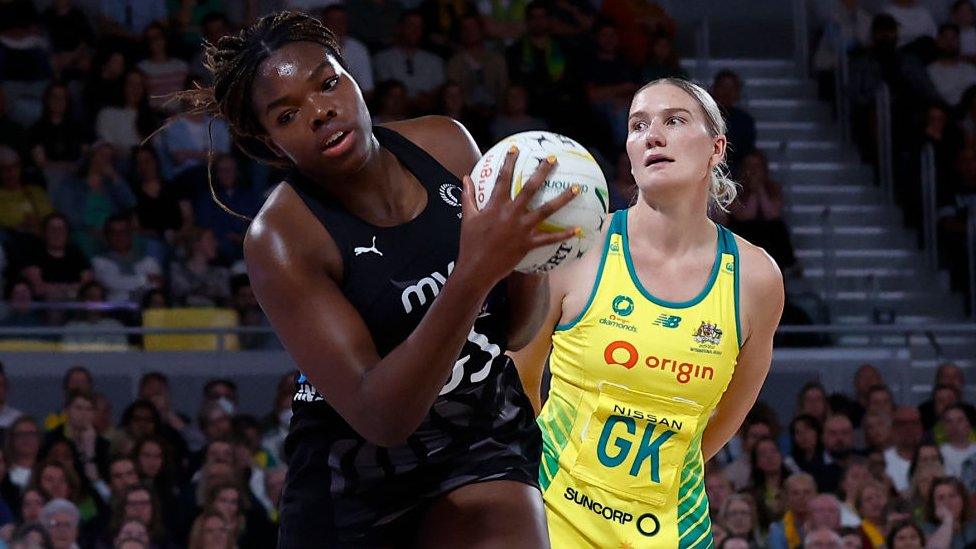
New Zealand's Grace Nweke (left) was named the Most Valuable Player of the Tournament at the prestigious Netball Quad Series in January
But Clarke has suggested the team have have only one destination in their minds in Cape Town.
"We've been to so many World Cups, but we've never broken into that final. So, even though we've been around for so long, that's still a first that we want to achieve. That really excites us. The final would be the dream - it would be incredible. Every day when it gets tough in training, that's what you're doing it for."
Elsewhere, New Zealand captain Ameliaranne Ekenasio has been in impressive form and fellow Silver Ferns newcomer, (the NZ team nickname), Grace Nweke has cemented herself as one of the best young goal shooters in the world.
How to play netball
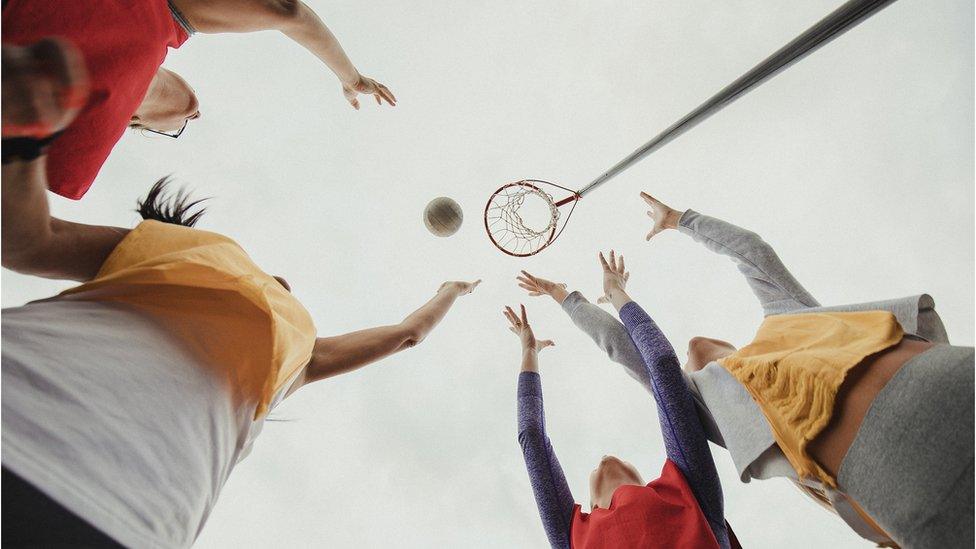
The aim of a netball game is to get the ball to your end of the court and shoot it into a hoop while you're in the shooting circle to score a goal.
The team with the most goals at the end of the game wins.
Unlike basketball, you're not allowed to bounce the ball while you have it, you must keep at least one foot touching the ground and pass the ball within three seconds to avoid a free pass given to the other team.
Netball is played by two teams of seven players.
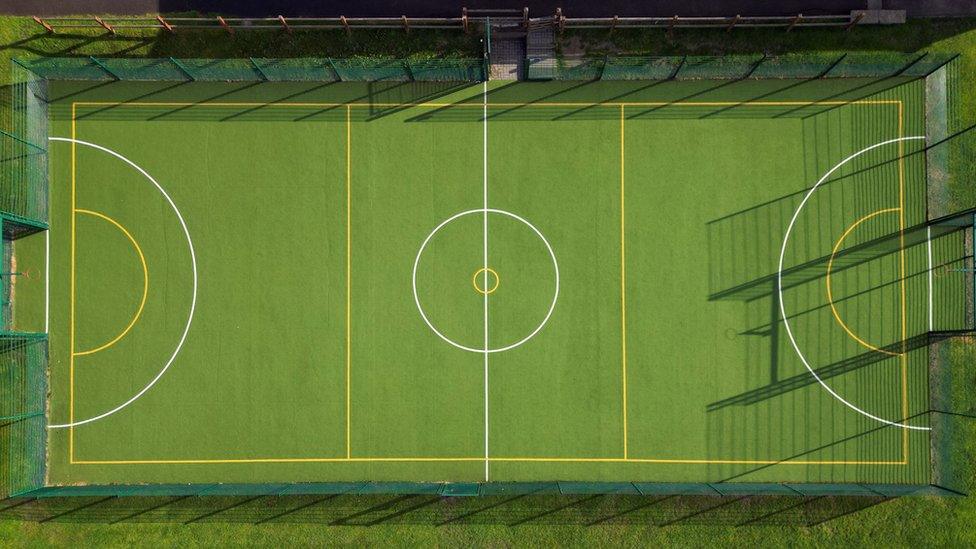
A netball court is split into thirds
The court is split into thirds. Two are for shooting and include a shooting circle (also known as the goal circle or the D) with a third sandwiched between them where play begins.
The direction you are shooting in is the top of the court and the side you are defending is called the bottom of the court.
Certain positions are only allowed in specific areas on the court otherwise they're offside and the other team is awarded a free pass.
Centre (C) - The centre starts the game and can move around the whole court except the shooting circle on either team's side.
Wing Attack (WA) - The wing attack helps get the ball into their side's shooting circle. They are only allowed in the top two thirds of the court.
Goal Attack (GA) - The goal attack is one of two shooting positions and they are allowed in the same areas as wing attack - the top two thirds - but can also enter the shooting circle. They can either pass the ball to the goal shooter or take a shot themselves whilst in the shooting circle.
Goal Shooter (GS) - The goal shooter does what the position says, they shoot! They need to create space so their team mates can pass the ball to be able to take a shot at the hoop. They are only allowed in the top third of the court and the goal circle.
Wing Defence (WD) - Wing defence is there to defend and intercept the ball and get it back to team mates at the top thirds. They are only allowed in the bottom two thirds of the court.
Goal Defence (GD) - The goal defence wants to try and keep the ball from entering the opposing team's shooting circle. They are allowed in the bottom two thirds of the court and the goal circle.
Goal Keeper (GK) - The goal keeper usually sticks closely to the opposition's GS to stop them shooting or scoring a goal.
What are the rules of netball?
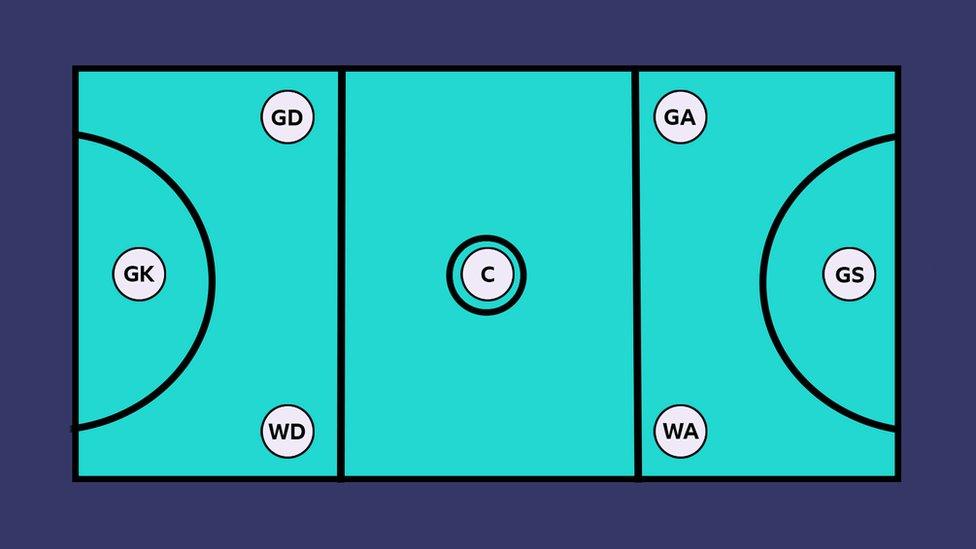
This where members of a team need to be before the game can start
Before the game starts and after each time a goal is scored, the game must be started in the centre third.
Within the centre third is a centre circle. The Centre stands in this circle and has three seconds to pass the ball once the whistle is blown.
Their team mates (GA, WA, GD, WD) have to wait at the border between the top and bottom thirds and the centre third until the whistle is blown and play begins.
The GS and GK remain in the goal circle until the whistle is blown.
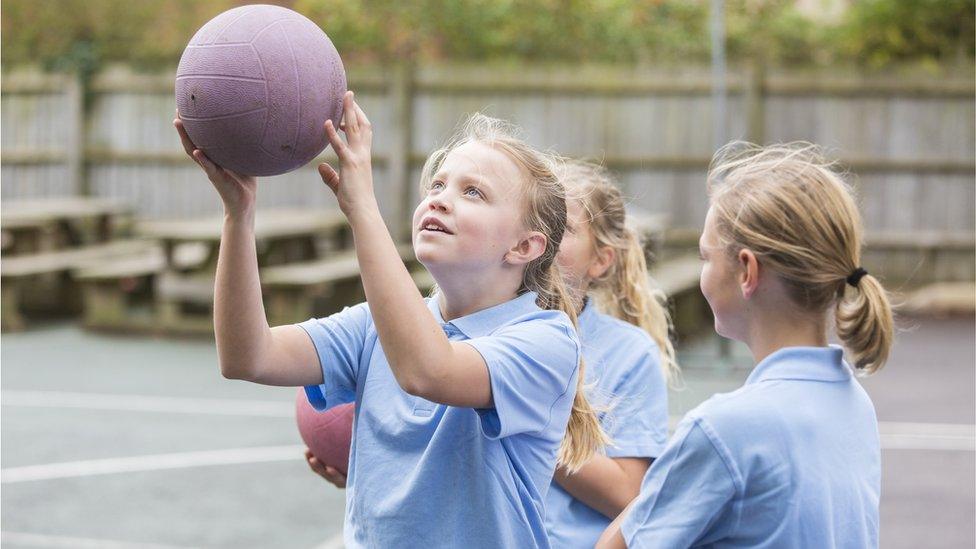
You can only hold the ball for three seconds before passing it and you cannot re-catch the ball otherwise a free pass is given to the other team.
The ball cannot be passed across a complete third without being touched or caught by a player in that third and if you want to pass a short distance, there must be enough space that a player could come between you and the person you are passing to.
If you break any of these rules, the opposing team is given a free pass.
You might also get a penalty pass.
A penalty pass is like a free pass except the player who broke a rule must stand next to their opponent unable to play until the ball is thrown.
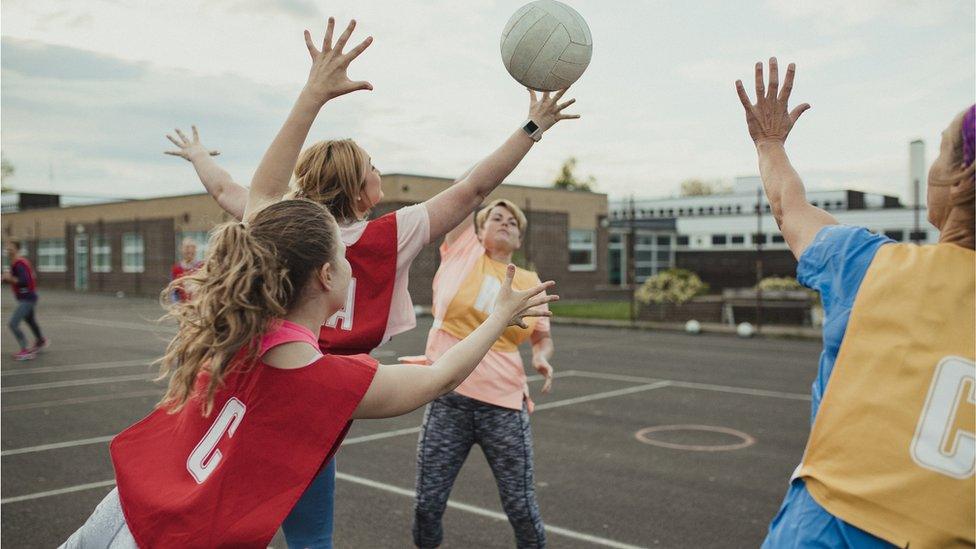
You can intercept a ball once it's been passed
Netball is a non-contact sport - players must keep around a one metre distance away from who they are defending against.
You cannot knock the ball out of someone's hands but you can catch or deflect a pass once it has left your opponent's hands.
You also cannot delay the game either deliberately or accidentally.
Breaking any of these rules will result in a penalty pass.
A netball game is divided into four quarters, each 15 minutes long, which means games take an hour in total.
History and origins of netball
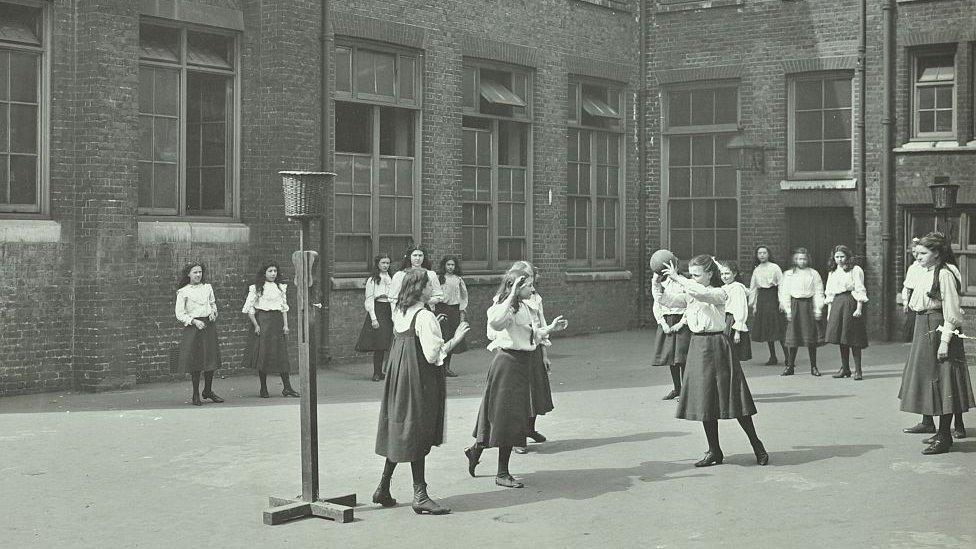
These girls are playing a version of netball in London in 1908
Netball stems from the game of basketball which can be traced back to a man called Dr James Naismith in 1891.
The modified women's game, which was adapted from Dr Naismith's game for men in 1892, eventually spread around the United States in many different versions.
The gradual transition from basketball to netball happened in Dartford, England in 1897 when an American teacher introduced the game at Madame Österberg's college.
The game used basketball rules with an outdoor court but replaced basketball hoops with basic netted rings without a board behind it, giving it its new name - netball!
The first set of rules from the Physical Education Association were created in 1900 and a new international code of rules for netball was finally introduced in 1960.
Is netball only for girls?
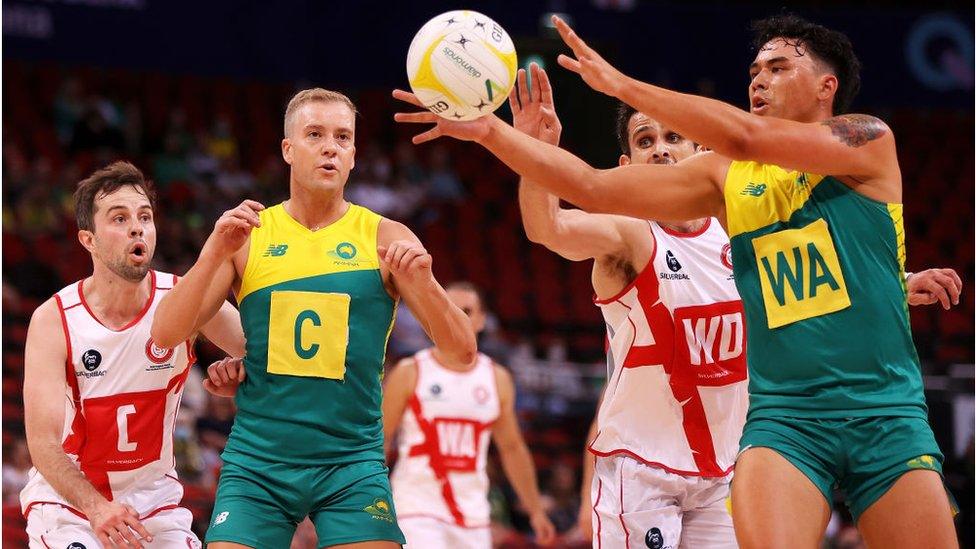
Although netball is thought of as a girl's sport, there are men that play the game internationally!
Boys can play both normal netball and High 5 netball - a version of the game used to introduce young players to the sport.
In this version, only two boys are allowed on the court at the same time.
You are also only allowed to have three boys on a team in total.
At primary school you might play a variation of the full netball game called High 5 netball.
Instead of 15 minute quarters you play for six minutes at a time.
There are only five players on the court at any one time and you rotate which position you play after each quarter.
Goal Shooter and Goal Keeper are allowed up to their opposing third rather than having to stay in the shooting circle.
The goal post is slightly lower
More boys and men are taking up the sport and there is an England Men's National Team called The Thorns.
Is netball an Olympic sport?
Netball isn't currently a sport in the Olympics because of the gender imbalance of the sport - women's netball is very strong and established but men's netball is less so.
Fans of the sport hope it'll be included for the 2032 Olympics - to be held in Australia where netball is a very popular sport.
- Published11 May 2023
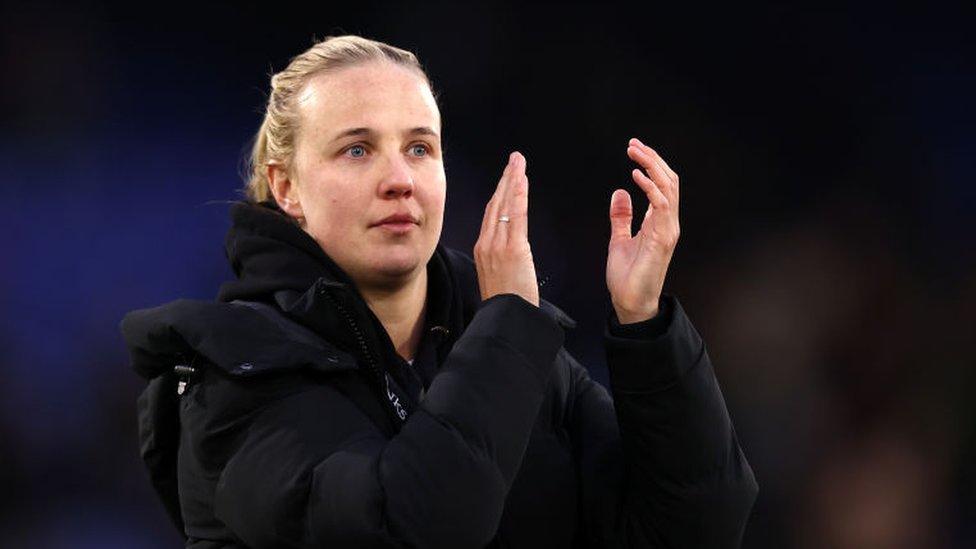
- Published30 September 2021
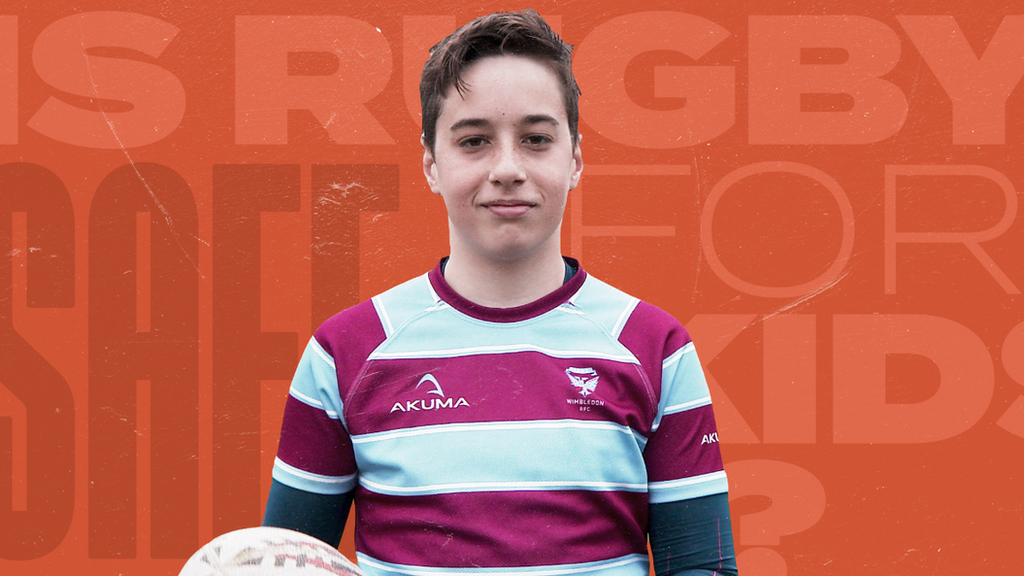
- Published10 April 2024
